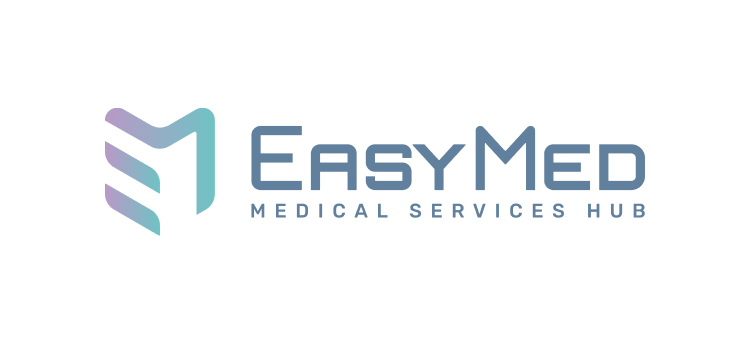
Transrectal ultrasound (TRUS)
Transrectal ultrasound (TRUS) is a specialized form designed to examine the prostate and surrounding tissues in detail. This technique uses ultrasound waves to create accurate internal images, which is especially important for detecting prostate diseases such as prostatitis, benign prostatic hyperplasia, or cancer.
Дополнительные процедуры:
- Лабораторный анализ мочи
- Элемент списка #2
- Элемент списка #3
Transrectal ultrasound with EasyMed
EasyMed offers online TRUS scheduling services at leading urology centers in Israel. Cooperation with EasyMed begins with filling out an application. It continues with comprehensive support when making an appointment for the procedure.
In addition to diagnostics, EasyMed assists in arranging consultations with leading urologists to discuss the study results and plan further treatment steps, if necessary. Thanks to the individual approach and attention to detail, EasyMed patients can be sure to receive quality medical care at all stages of the diagnostic process.
Indications for transrectal ultrasound
- Diagnosis of prostate disease: If you have symptoms such as difficulty or painful urination, frequent urges, especially at night, or erectile dysfunction. If prostatitis, benign prostatic hyperplasia, prostate stones, or cysts are suspected.
- To detect and assess the volume and structure of the prostate when cancer is suspected: TRUS can help in the early detection of prostate cancer, especially when combined with the determination of PSA (prostate-specific antigen) levels in the blood.
- Assessment of the condition of the surrounding tissues: Examination of seminal vesicles and surrounding tissues if their pathology is suspected. In some cases, TRUS may be used to assess the lower urinary tract condition.
- Post-treatment monitoring and monitoring: To monitor the effectiveness of treatment for prostate diseases such as prostatitis or adenoma.
- Preparation for some medical procedures: Before performing a prostate biopsy, determine the most appropriate sample location.
Importantly! TRUS plays a key role in the early detection of prostate cancer, as well as in the diagnosis and monitoring of other pelvic diseases. However, despite its high informative value, TRUS should be combined with other examination methods for a more accurate diagnosis and treatment choice.
Preparation for the procedure
- Specific diet: 1-2 days before the examination, it is recommended to follow a light diet that excludes foods that cause gas (legumes, fresh vegetables, and fruits, brown bread, carbonated drinks).
- Colon cleanse: The evening before and a few hours before the procedure, it is necessary to cleanse the intestines. This can be done with micro enemas or laxatives that your doctor recommends.
- Eating and drinking liquids on the day of the procedure: Heavy meals should be avoided. Eating a light breakfast or not eating 4-6 hours before the test will help reduce discomfort. Drinking plenty of fluids is not recommended to prevent overfilling the bladder, which can cause pain during the procedure.
- Medical advice: It is necessary to notify the doctor of all medications you are taking, especially blood thinners, as some may require temporary withdrawal before the procedure.
Importantly! The EasyMed specialist will inform the patient about the necessary actions and restrictions before the procedure. Preparation for TRUS requires careful attention to the doctor’s recommendations. This ensures the patient’s comfort during the procedure and the most accurate and informative results. Improper preparation can lead to repeating the procedure or unreliable results.
How is the TRUS procedure performed
- Preparation for the procedure: The patient is asked to lie on their side, usually with the knees pulled up to the abdomen, which provides convenient access to the rectum. The doctor puts on gloves and uses a special sensor, which is covered with a protective cover and lubricated with gel to facilitate insertion.
- Transducer Introduction: The transducer is gently inserted into the rectum. This point can be slightly unpleasant but usually doesn't cause pain. The patient must remain as relaxed as possible during the insertion of the transducer, as this reduces discomfort.
- Procedure: The doctor moves the transducer to different positions to get a complete picture of the condition of the prostate and neighboring organs. Modern ultrasound machines make it possible to obtain detailed images, which the doctor analyzes in real-time.
Importantly! Be sure to inform your doctor of any pain or discomfort during the examination. This will allow the doctor to tailor the procedure to ensure maximum comfort.
Diagnostic Capabilities of Transrectal Ultrasound
- High prostate imaging: Transrectal ultrasound provides detailed images of the prostate, which is critical for diagnosing prostate diseases. The method effectively detects changes in the structure of prostate tissue, including nodules, cysts, and other abnormalities.
- Prostate cancer detection: The procedure is used to detect suspicious areas in the prostate that may indicate the presence of cancer.
- Pelvic Disease Assessment: In addition to the prostate, TRUS effectively assesses the condition of the seminal vesicles and adjacent tissues. The method can be used to diagnose chronic prostatitis and other inflammatory diseases.
- Post-treatment monitoring: TRUS is indispensable for monitoring the condition of the prostate after surgery or other treatments. This makes it possible to detect possible complications or recurrences of the disease in time.
Importantly! TRUS is a key tool in the hands of the urologist and proctologist. Due to its high accuracy and safety, this method plays an important role in the early diagnosis and effective management of the treatment of diseases of the prostate and surrounding tissues. However, it should be remembered that TRUS is often combined with other testing methods, including laboratory tests and, if necessary, biopsy to confirm the diagnosis and choose treatment.
Contraindications to transrectal ultrasound
- Acute inflammatory diseases of the rectum: In acute proctitis, paraproctitis, or rectal fissures, TRUS can increase inflammation and lead to more serious complications.
- Recent rectal surgery: After surgery, it is recommended to postpone TRUS until the tissues are completely healed to avoid the risk of infection or injury.
- Severe hemorrhoids: The presence of extensive or inflamed hemorrhoids can make the procedure extremely painful and increase the risk of bleeding.
- Rectal stenosis and strictures: Narrow areas in the rectum can prevent transducer insertion and increase the risk of injury.
- Intolerance to latex or lubricant gel components: Allergic reactions to latex or other materials used in the test process may cause TRUS rejection.
Importantly! In case of doubt or contraindications, the doctor may consider alternative diagnostic methods. Despite TRUS’s high informative value and safety, it is always worth considering the individual characteristics and conditions of the patient to eliminate possible risks and ensure the maximum efficiency of the diagnostic process.
EasyMed – Your Reliable Diagnostic Assistant
By choosing EasyMed for TRUS appointments, customers receive a guarantee of efficiency and convenience in this procedural aspect. Our team carefully selects the best Israeli clinics performing transrectal ultrasound, considering the specific needs and urgency of each case.
Interaction with EasyMed eliminates the need for patients to search for medical facilities independently, thereby eliminating delays, obstacles, and waiting in queues. We also make online appointments and additional medical consultations and procedures upon request.
Our professionals accompany you from the moment of application to the moment of receiving the results, guaranteeing prompt access to high-quality medical services in Israel.
Want to make an appointment for a review?
Fill in the following details
and we will contact you as soon as possible
Faq
Frequently asked Questions
We provide personalized healthcare services. Our main goal is to provide you with a quick appointment for the necessary medical examination or consultation with a doctor.
There is no need to wait several months: with us you will get to the right specialist in the shortest possible time.
Waiting times depend on the complexity of the procedure and the doctor’s profile. We can make an appointment with some specialists within 24 hours. For complex procedures, the waiting period of which reaches several months, you will be treated with us within 2-3 weeks.
There are a number of procedures (for example, complex types of MRI) that the patient can wait about a year and a half. We can reduce this period to 3 months.
We cooperate with leading specialists in various fields, as well as with top clinics and laboratories throughout Israel and abroad.
Our doctors use the latest treatment protocols and the most advanced technologies. The clinics we work with are equipped with modern equipment that provides the most accurate results.
Our partners are experienced professionals who have earned trust due to their experience, knowledge and professionalism.
We operate in all regions of Israel. Your appointment will be scheduled at the location most convenient for you.
The cost of services depends on the complexity of the procedure and the doctor’s profile. For accurate information and cost calculation, leave your details or call: 033083020
Yes, absolutely. Confidentiality and protection of our clients' personal information is one of our key priorities. We strictly adhere to all legal and ethical standards to ensure the maximum security of your data.
Our specialists will check whether in a particular case a refund from the insurance company is due. If yes, then after completing the procedure, a receipt will be sent to the insurance agent, who, in turn, makes a request to the insurance company to return the amount due to the patient for the procedure completed.



